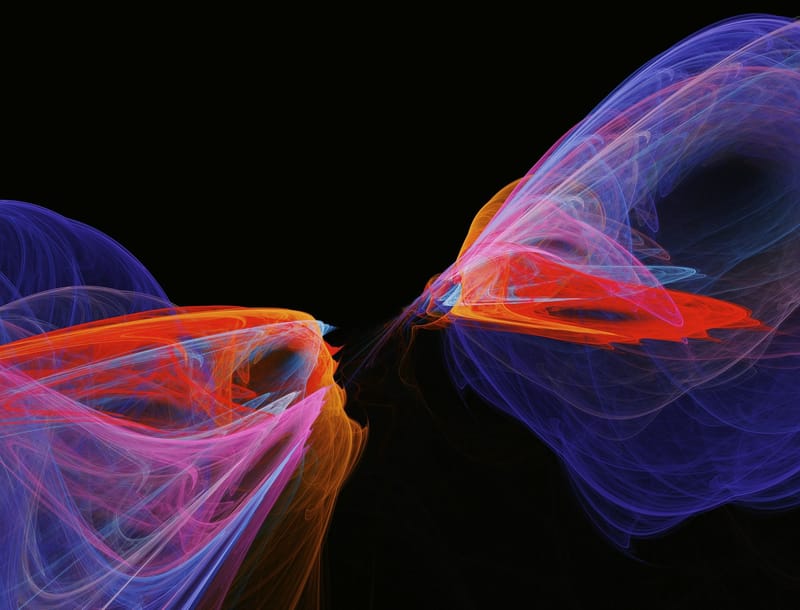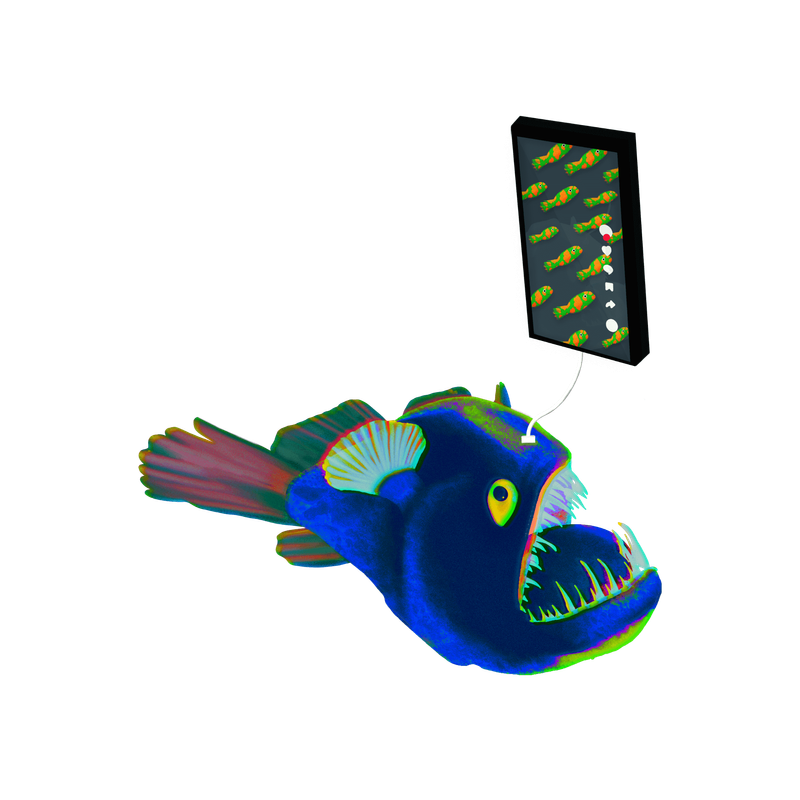In 2000, eccologist Eugene F. Stoermer and atmospheric chemist Paul Crutzen first put the term “Anthropocene” into print and began its dissemination.>>1 In the article, they specified why our present geological epoch deserves its new moniker, adducing the drastic anthropogenic changes to the systems of the Earth. In short, in developing the meaning of the Anthropocene, they and others cite evidence that indicates, for instance, that human activity is responsible for CO2 levels three times that of pre-industrial levels, which, in conjunction with increases in other greenhouse gases, is causing global warming. This, in turn, is causing rising sea levels, the melting of polar ice sheets, and species migrations. Combining all of this with predation, habitat fragmentation, and the anthropogenic introduction of invasive species, we find that the current extinction rate is 100–1000 times background levels and that this rate is projected to increase by another ten-fold this century, which is ultimately leading to the sixth great extinction event.>>2 To this litany of anthropogenic environmental changes, which are almost always destructive, unfortunately still more could be added, as could the startling fact that we are the only known species in the history of the Earth to be in such a position that we can comprehend the future possible extinction of our own species. We can see, and indeed we are creating the conditions for life beyond ourselves will be impossible.
Perhaps surprisingly, since he had access neither to the data that led to the neologism “Anthropocene” nor the term itself, Schelling writes something similar in the Introduction to his 1797 Ideas for a Philosophy of Nature, albeit with different intentions: “As soon … as I separate myself, and with me everything ideal, from Nature, nothing remains to me but a dead object, and I cease to comprehend how a life outside me can be possible.”>>3 Schelling identifies and criticizes several philosophical positions in his Introduction, locating their general failure in the fact that they are unable to bridge the chasm, first opened by philosophy, between human and nature. These failed philosophies of nature draw the human away from it, transforming nature into a morass of dead objects, into a thing set over and against the human. I argue that we can understand this estranged relationship that Schelling identifies as significantly contributing to the conceptual foundation of the Anthropocene. Schelling’s analysis and criticism of these failed philosophies of nature thus provide a key to understanding the human’s destructive relationship with nature, beyond the oft-cited drivers of the Anthropocene.
In what follows, then, I present some of Schelling’s criticisms of these philosophies, indicating how he analyzes several variations of materialism and idealism. I maintain that the Anthropocene and the anthropogenic environmental destruction that characterize it are the tangible products of these earlier, failed philosophies of nature as identified by Schelling. This claim nuances the etiology of the Anthropocene given by its authors (Stoermer, Crutzen, Steffen, and others), who hold that the Industrial Revolution and the activities endemic to it, like the exponential increase in the use of fossil fuels, are responsible for the Anthropocene.
I do not dispute the necessity of industrialization to the emergence of the Anthropocene and the deleterious effects on nature that this term attempts to capture, but I do argue that industrialization is not exhaustive as an explanation for the Anthropocene’s ground. Through Schelling’s identification and criticism of philosophies of nature, we can thus come to understand better why this process of industrialization continues and why humans have remained, and seem to become even further, estranged from nature.
Schelling’s Introduction to the Ideas is not meant to establish a philosophy of nature, even though he intimates how such a philosophy might appear “more or less,” but rather to guarantee the real possibility of a philosophy of nature and show that this possibility has yet to be actualized. He mainly concerns himself with showing that nearly every philosophical system to come along since at least Descartes suffers from the same fault: the perpetuation of an artificial separation of human and nature, of mind and matter.
Schelling writes, “He who first attended to the fact that he could distinguish himself from external things, and therewith his ideas from the objects, and conversely, the latter from the former, was the first philosopher. He first interrupted the mechanics of his thinking, upset the equilibrium of consciousness, in which subject and object are most intimately united.”>>4 Philosophy, then, through reflection, first enacts the separation between human and nature. Indeed, it is my free spirit that allows me to reflect and ask first of all: How is it that I have ideas? “Thus, with this question itself,” Schelling writes, “I step out of the series of my ideas, release myself from connection with the things, adopt a position where no external force can reach me any longer; now, for the first time, the two hostile beings mind and matter separate.”>>5 This separation, which he also describes as idea from object and human from herself, is tantamount to, Schelling writes, “a spiritual sickness in mankind…. It is an evil which accompanies man into life itself, and distorts all his intuition even for the familiar objects of consideration.”>>6 This spiritual sickness that infiltrates the human’s entire life, distorting even objects of everyday consideration, is a product of philosophy, which first cleaves apart human and nature. In this respect, Schelling calls philosophy a “discipline of errant reason” and “a necessary evil.”>>7
At the same time, though, philosophy is also that which can reunite the human with nature, and return the human to that state in which “man was still at one with himself and the world about him.”>>8 The nature of philosophy, then, is at least twofold, i.e., a work of reflection or division as well as a work of unification. Philosophies that pursue the former all suffer the following fate: Though they might aim to reunite the mind and matter, human and nature, they flounder and perpetuate this separation, and philosophy ends up working “for its own destruction.”>>9
The materialisms, therefore, that attempt to explain nature by focusing on the external world, on its cause and effect, on theories of matter, or on empiricism cannot produce the desired unity between human and nature. For example, the mechanist, in assuming everything to be present already outside of us, hopes to explain nature as a series of external causes and effects, and he may, in this hope, progress quite far, ostensibly able to elucidate many of the processes of the natural world. Schelling, however, argues that this approach is only viable until one desires to know something more from the mechanist, namely, how does this nexus of cause and effect first emerge?>>10 But any answer to this question requires the transcendence of mechanism and thus brings any philosophical aspirations it might have had to a close.
The issue, moreover, is not how matter affects matter, as in mechanism, but how matter affects us, how the human experiences nature. One could then take the position that it is the nature of matter that yields our conceptions of nature, and if we want to understand nature and our place in it, then we must investigate what matter is. For discovering matter’s reality would be the discovery of nature’s reality, too.
In studying matter, we find it to be composite and divisible. It is found to have more and more parts, and, indeed, it is thought that its reality would have to consist in infinite parts out of which nature gains its diversity of forms. Yet, if this were the case, Schelling asks, how would a finite mind assemble this infinity of parts? It would not be possible; such a position is unsustainable. Conversely, then, we take the putting together to have already begun at some fixed point. Matter, then, would not be infinitely divisible, but would have some ultimate constituents, some atoms. However, we never find such ultimate parts no matter how much we divide, and, Schelling writes, “Matter, the first foundation of all experience, becomes the most insubstantial thing we know.”>>11 Theories of matter, atomist and otherwise, (Schelling also considers dynamic theories of matter as well as the Lebenskraft) therefore appear incapable to offer a foundation for us to unify human and nature.
Schelling’s criticism of materialisms invites the further question whether empiricism itself could ever be a sufficient foundation for the knowledge of nature, especially insofar as he has claimed matter to be the foundation of all experience. Nonetheless, he concludes that “the ultimate knowledge from experience is this, that a universe exists; this proposition is the limit of experience itself.”>>12 Schelling presents several criticisms of empiricism, but I will focus on two.
First, empiricism is troubled from the very start by the question of the possibility of sensation. Again, the question is how does the consciousness come into contact with matter, how does this internal part contact the outer one or vice versa? The mechanical response that explains vision, for instance, as a series of movements in the muscles, nerves, brain, and so on, faces the difficulty that such an explanation makes sensation entirely passive and reactive and cannot account for how sensation is raised to the level of consciousness, of how we not only have sensations, but are also aware of having them.
Second, Schelling also takes on Hume’s skeptical empiricism, which is an interesting case for him, since Hume, insofar as he posits the necessity understood in the succession of our appearances as illusory, seems to directly countenance the separation of which Schelling is so critical. Schelling, recognizing that so much rests on what Hume posits as illusory, such as empirical science, theories of nature, and human history, asks what leads us to understand the succession of appearances as necessary. Hume’s response, as Schelling gives it, is that we understand them as necessary because of custom. The appearances follow one another in an order that the imagination becomes accustomed to and thereby expects the same result in the future. This “long habituation” becomes for us a “second nature.”>>13 Schelling criticizes Hume’s response, since it appears to circle itself, leaving the explicandum entirely as it was to begin with. Hume has not said why one thing follows another in this order, even if it only appears to follow in this order. Schelling argues that Hume is content with the fact that they just do, yet Schelling also maintains, more than once in the Introduction, that once certain questions are raised, they are not so easily dismissed.
In addition to the foregoing criticisms, I would also like to address a few from the other side—that is, from mind and idealism. Although I see Schelling’s Introduction as indebted to a Kantian foundation, in that his investigation is informed by problems from the first and third Critiques, he shows no sympathy for a philosophical position that relies on the thing-in-itself, since, at a most basic level, the division between it and the phenomenon is an essential expression of the separation between human and nature. In particular, Schelling finds the thing-in-itself to be the highest nonsense, since in order to live up to its reputation, it must be divested of all that is involved in the faculty of representation: cause and effect, spatio-temporal conditions, etc. Schelling writes, “Nevertheless these things-in-themselves, although altogether inaccessible to our faculty of intuition, must still be actually present—one knows not how or where—probably in the twilight worlds of Epicurus—and these things have to affect me in order to occasion my ideas.”>>14 When we speak of the thing-in-itself, we thus speak improperly. Schelling argues that it is not even possible to conceive of the thing-in-itself metaphorically, since the images that we might use to envision it remain wedded to space and time.
Though I will not be able to elaborate on them, Schelling offers many more criticisms of the positions already noted as well as of several others—dualism, common-sense, theism, rationalism, Leibniz, and Spinoza. Schelling praises Spinoza (and to a lesser extent Leibniz) as the first to join mind and matter under a single principle, yet criticizes him for his search for the infinite in the external world, rather than within us—that is, Spinoza “lost himself forthwith in the idea of an infinite outside us.”>>15 No matter the philosophy, though, the criticism remains the same: previous philosophies perpetuate the separation of the human from nature, and as long as they continue to either support this divorce or falsely think themselves to have resolved it when they have not, the separation will only continue to grow. The human and her relation to nature will only become more fractured and estranged.
In their analysis of the Anthropocene, Steffen et al. consider two hypotheses that propose an earlier beginning to the epoch than they do: the extinction of Pleistocene megafauna due to human hunting pressure and the effects of the agricultural revolution. Both, however, are convincingly rejected, because of a lack of evidence demonstrating that these early humans had any long-term effects on the operations of the Earth’s whole system. In their stead, they propose a starting date of the year 1800 AD, which is midway between the earliest beginning of the Industrial Revolution and the point at which its effects became widespread and undeniable.>>16 They give the reasons for their position, noting that in this period societies, through the “discovery and exploitation” of fossil fuels, began to use four to five times as much energy as their agrarian forebears, who were themselves already using three to four times as much as hunter-gatherer societies.>>17 They argue that the effects of this increased energy use, in conjunction with the effects of terraforming, which includes, for instance, the transformation of natural ecosystems into cropland and grazing land, are what distinguish our epoch as the Anthropocene. Yet, as Steffen et al. themselves admit, the reasons for the transition to the Industrial Revolution are “complex and interrelated,” involving changes in politics, economics, and social thought.>>18 However, they offer no analyses of these changes, and they do not need to in order to demonstrate their claim about the material conditions of the Anthropocene.
Still, one can ask whether the Industrial Revolution, as a human historical event, had to unfold as it did, whether the “discovery and exploitation” of fossil fuels on such a massive and unprecedented scale was merely the response to the problem of sustaining a growing population. One can ask, as well, now that these anthropogenic and harmful effects have been well documented, and the reality of the Anthropocene well established, why efforts to rectify the human relationship to nature have been seemingly so lackluster? One can ask, in the end, what Steffen et al. have not—that is, whether there are not also philosophical contributions to the beginning of the Anthropocene, so that its emergence is not only to be explained by material and sociopolitical causes, but also by philosophical ones?
The claim that I am advancing here is that Schelling’s identification and criticism of the failed philosophies of nature is also an identification and criticism of the conceptual foundations of the Anthropocene, and that if this is the case, then the problems of the Anthropocene have roots that run much deeper than the scientists publicly recognize. Indeed, Schelling shows in his Introduction that the most diverse systems of philosophy have this much in common: they all separate the human from nature. Insofar as Schelling exposes the “spiritual sickness” of these philosophies, he also exposes the fault in the philosophical ground of the Anthropocene, and, insofar as he can articulate a true Naturphilosophie, he also offers the prospect of thinking beyond it.
<<1 Paul J. Crutzen and Eugene F. Stoermer. "The Anthropocene," IGBP Global Change Newsletter 41 (2000): 17-18.
<<2 Jan Zalasiewicz et al., "The New World of the Anthropocene," Environmental Science & Technology 44, no. 7 (April 2010): 2228–31, doi:10.1021/es903118j, 2229.
<<3 Friedrich Wilhelm Joseph von Schelling, Ideas for a Philosophy of Nature as Introduction to the Study of This Science, ed. Robert Stern, trans. Errol E Harris and Peter Heath (Cambridge : Cambridge University Press, 1988), 36.
<<4 ibid., 12.
<<5 ibid., 13.
<<6 ibid., 11.
<<7 ibid., 11.
<<8 ibid., 10.
<<9 ibid., 11.
<<10 ibid., 30.
<<11 ibid., 17.
<<12 ibid., 18.
<<13 ibid., 26–27.
<<14 ibid., 25.
<<15 ibid., 27.
<<16 Steffen et al., 849.
<<17 ibid., 848.
<<18 ibid., 848.
Details
"The Conceptual Foundations of the Anthropocene: Schelling’s Critique of Failed Philosophies of Nature," Schelling in the Anthropocene: Thinking Beyond the Annihilation of Nature. (North American Schelling Society, Bard College, NY: August 2014).





